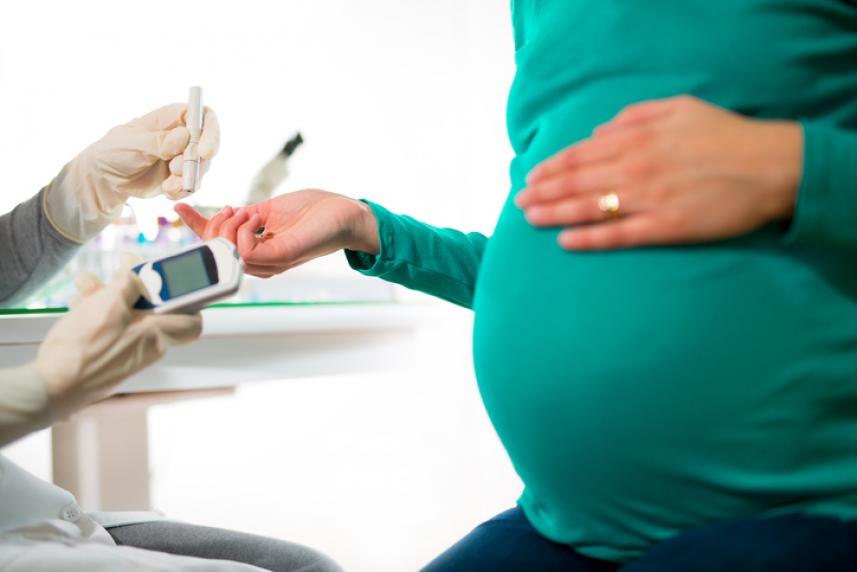Having a Baby and Diabetes
Type 2 is a bigger risk for women who develop diabetes when pregnant. Here’s how to lower your odds

Some moms-to-be already have type 1 or type 2 diabetes before pregnancy, but about seven percent will develop high blood-sugar during pregnancy. Usually, gestational diabetes goes away after the baby is born. However, if you had this condition during your pregnancy, you should know that you have a 2-in-3 chance of it returning as type 2 diabetes later in life. Here’s what you can do to prevent that.
Take a team approach. The American Diabetes Association recommends working with your health care team (doctor, OB-GYN, nurse educator and dietitian) to manage your blood sugar during pregnancy. Diabetes can be difficult to understand, and it’s important — for you and your baby — to get it under control.
Maintain a healthy weight. Losing baby weight is even more important if you had gestational diabetes. If you’re more than 20% over your ideal body weight, every little bit of weight loss is helpful. Breastfeeding is one way to help you lose baby weight faster, even if you do it only for a few months. Following a healthy, balanced diet and getting regular exercise will also help manage weight.
Use up extra glucose. Your body fuels workouts with glucose, the sugar in your blood. When you have gestational diabetes, exercise can help get rid of some of the “extra” sugar in your blood. Getting some physical activity is a good habit to get into at any time in your life. Just get your doctor’s okay before starting to work out, and begin slowly and build gradually.
Practice mindful eating. As a new parent, you are bound to be tired, but keep in mind that nutrition will give you the energy you need for all the new to-dos on your list. Focus on eating more nutrient-rich foods and less of those that contain lots of calories but little nutritional payoff. Eating more whole foods — like fresh fruits and vegetables, seafood and lean meats, nuts, seeds, beans, and low-fat dairy — is an easy way to avoid added fats, trans fats and sugars. Another no-brainer is to cut back on sugars: Drink water instead of soda, sports drinks, and juice. You’ll save money, too!
Ask to be screened. Studies show that even women who know there’s a link between pregnancy diabetes and type 2 diabetes don’t think that they, personally, are at risk. But they (and you) are. You don’t want to go into your next pregnancy with diabetes, so make sure you get screened. Ideally, this should happen 6 to 12 weeks after you welcome your little one into the world, and again every 1 to 3 years after that. About three-quarters of women with gestational diabetes don’t get screened within their first year of motherhood, so be sure to request it if your doctor doesn’t suggest it.



